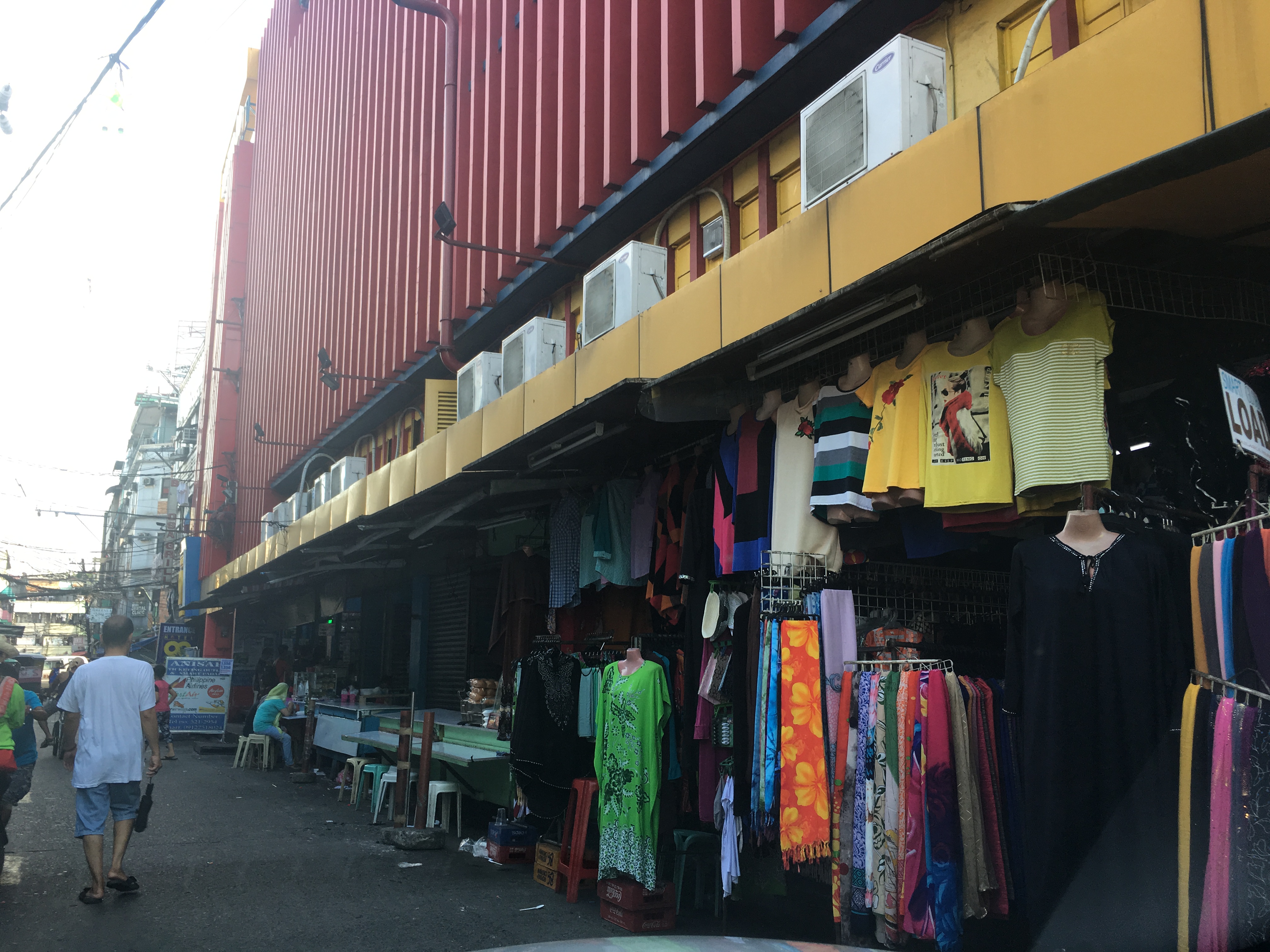“It’s not enough to live off of anymore,” *Antonio said while sitting on a monoblock chair in the middle of a narrow Manila sidewalk. He was facing a baroque-style church thousands of devotees flock to every week, but Antonio’s eyes were not on the 400-year-old site; they were on the makeshift stall he was manning.
Antonio sells pirated DVDs. And until recently, business was good.
After all, he was in the perfect location. He would have to hide inside dark alleys or under flyovers if he were to sell in other parts of Manila, but in the Quiapo district, where he has been selling for at least 10 years, there is little reason to hide.
The area is a hotbed for all things bootleg. Behind Antonio was a table offering fake driver’s licenses and college diplomas.
At his peak, Antonio said he earned as much as PHP5,000 (about USD100) on DVD sales every day, but now it’s down to PHP500 (USD9.79). While the Philippine government has been cracking down on intellectual property violators in the past year, Antonio said the real threat today comes not from police, but the internet.
This month, the box-office hit Kita Kita was posted and shared on Facebook while it was still in cinemas. A quick search will result in multiple copies of the film in its entirety. One video posted last Friday has more than 3,000 views and more than 100 shares. This does not include the views and shares from videos uploaded earlier and ones shared in secret Facebook groups and streaming websites.
Social media has not only made it easier to share pirated movies, it has also made it more difficult to track and penalize violators. It has affected how local films are made and distributed, shaking up the lives of not only those involved in movie productions, from whom they are stealing from, but old-school movie pirates like Antonio as well.

A shift in the industry
“We’re struggling. We’re struggling to survive,” Mae Cruz-Alviar, a film director for Star Cinema, one of the biggest movie studios in the Philippines, told Coconuts Manila earlier this month..
In 2015, her film Everyday I Love You, a romantic-comedy starring Enrique Gil and Liza Soberano, hit social media and streaming websites after only its second week in theaters. Some copies are still available online.
Cruz-Alviar said that much has changed when it comes to dealing with piracy since she began working in the film industry in the early ’90s. “A difference I noticed is that we spend … we allot a certain amount in the budget to fight piracy.”
This budget goes towards extra post-production costs. The director explained that today, every copy of a Star Cinema film has a unique watermark edited into it. This helps them determine what cinema a pirated copy came from, but also adds to the film’s final price tag.
Many of those who stream or download local films are Filipinos living in other countries who do not have easy access to local content. Star Cinema has countered this by holding simultaneous premieres around the world, a practice that increases the film’s budget even more. According to Marizel Samson Martinez, manager for production at Star Cinema, simultaneous premieres require them to make two masters for one film, doubling the work for the staff and equipment.
While changes like simultaneous release dates are understandably seen as benefits from the audience point of view, one negative effect of piracy and its resultant costs can be appreciated by everyone: lower-quality films.
“What jumped out at me is that we have less budget for event films, for big films,” Cruz-Alviar said.
She offered Star Cinema’s 2000 film Anak as an example. Anak was shot on location in Hong Kong and the Philippines and starred veteran actor Vilma Santos and Claudine Barretto, who at the time was one of the most popular young actors in the country.
The film tackles the struggles of a Filipino woman working as a domestic helper and the strain it causes on her family. It went on to become the Philippines’ entry for the 73rd Academy Awards and is now considered a modern classic.
These days, the studio mostly produces romantic comedies that are safer bets to perform well at the box-office but rarely end up with as much critical success.
For Cruz-Alviar, the rise in online piracy roots from people’s changing viewing habits. She thinks that many people used to finding their content online probably don’t see much of a difference between watching videos on authorized streaming websites and videos uploaded illegally.
“The age of Netflix. You’re used to streaming. So it’s become a norm. So you feel that [illegal streaming is] the same [as watching on Netflix]. One and the same,” she said. For her, this, coupled with Manila’s bad traffic situation, are why people prefer to watch films at home.

The hard truth about soft copies
A few blocks away from Antonio’s stall is a mid-rise budget hotel painted blue, yellow, and red. Anyone who frequents the area knows that the building’s ground floor is packed with pirated DVD vendors with selections that would put Antonio’s to shame. All the booths were covered with DVDs from floor to ceiling and contained everything from Filipino classics to the recent Netflix release Okja.
Like Quiapo, the internet remains the Wild West when it comes to piracy — anyone can upload anything and everything — but while pirated DVDs can be confiscated, films posted online cannot be taken down so easily.
Last year, the Optical Media Board (OMB), the government agency in charge of regulating media manufacturing and replication, confiscated more than PHP1 billion (about USD20 million) worth of pirated media including film, movies, and software. Their 2016 accomplishment report says that this is the highest estimated value recorded since the agency was established 13 years ago.
This count only includes media found in physical containers like CDs, DVD, and hard drives. As of today, the OMB still has no jurisdiction over cases of online piracy.
“A lot of our stakeholders incidentally have been complaining that a large amount of pirated materials actually comes from the internet,” OMB chairman Anselmo Adriano, a lawyer by trade, said in a recent interview.
“You may be wondering, why is it that there are films that are being uploaded into Facebook? Why don’t we catch them? Because they’re not inside containers. So the only time we can [get involved] is if your pirated content is in a container.”
The Philippines does not have a law that specifically prohibits online forms of piracy, making it difficult to penalize intellectual property violators on social media. Adriano said that the OMB is almost ready to submit a draft of amendments to Congress that will incorporate online piracy into the agency’s responsibilities.
“As a law that regulates technology, you have to be always at par or ideally ahead of technological changes. Sadly, that’s not the case,” he said.
The very nature of online piracy is often difficult for consumers to conceptualize. Burning truckloads of pirated DVDs is an image people can easily remember; deleting files from a cloud, not so much.
“It’s difficult to teach people something they can’t see. Especially when you talk about intellectual property rights,” Adriano said.
Facebook doesn’t do much to help either. Their copyright infringement policy says that only the owners of pirated content are allowed to report posts that violate copyright laws. “Facebook moves slow. and they don’t really provide options for it. Some [videos] get taken down, but not quick enough,” Cruz-Alviar said.

Doing it for the ‘gram
The penalty for camcording in theaters is common knowledge to many. The sheer number of Derek Ramsay pare, pulis ako (Dude, I’m a cop) memes show that many have seen the Philippine National Police’s public service announcement about the issue. Even then, people continue to do it, often openly.
Sometimes it’s pirates, but usually, it’s overly zealous fans showing snippets of movies they’re watching on their Instagram stories.
“Everyone wants to be popular. Everyone wants to be noticed,” Cruz Alviar. “Everyone wants to be liked. So they do anything and everything to get those likes. To get all those added friends. To get all those added followers.”
For Adriano, to be able to say you’ve watched something, shared something, or posted something is what drives many to share pirated films.
“Others think that uploading will make them popular or be seen as heroes. That they’re doing it as a favor to other people,” he said.
One can search the title of almost any recent local film on Facebook and find posts that lead to clips of scenes or videos of the entire movie.
Streaming websites with pirated content earn from ads but for the most part, sharing ripped DVDs or recorded movies brings no financial benefit whatsoever — certainly not for the film’s creators, but not even for the uploaders.
While pirated DVD vendors like Antonio are worrying about decreasing sales, and directors like Cruz-Alviar are worried about the very future of their industry, many of those causing the problem are doing it for little more than an Instagram heart.
*The DVD vendor’s was changed so he could speak without fear of legal retribution.




